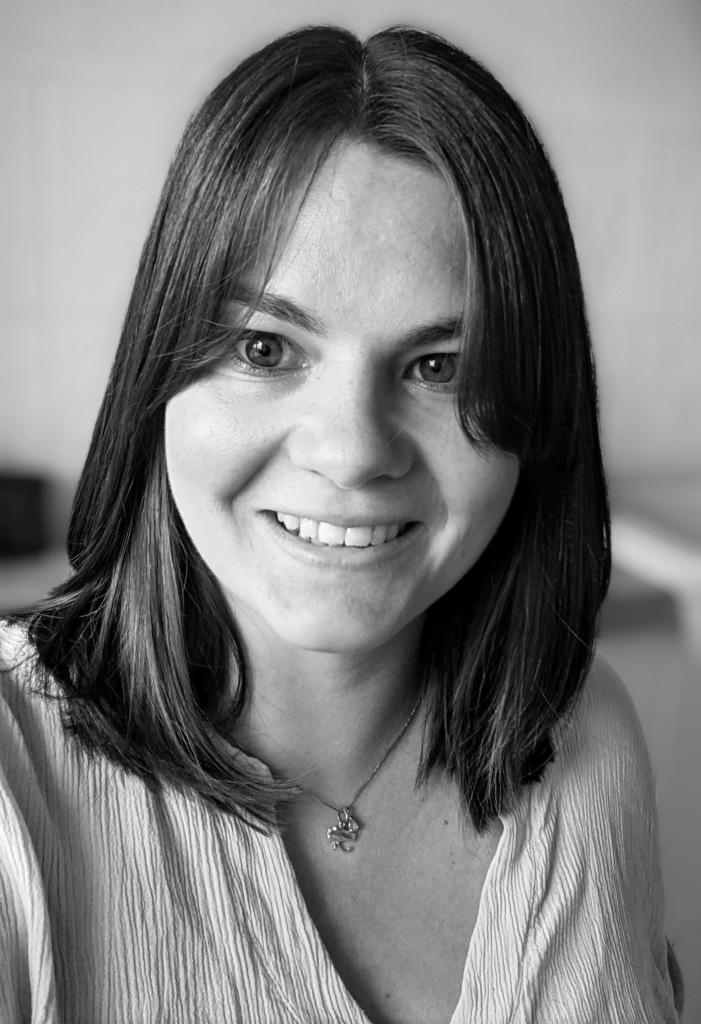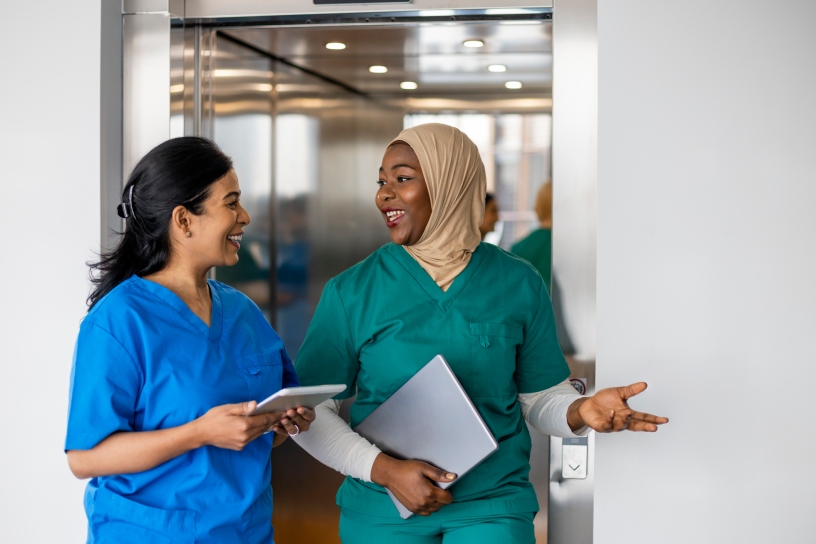
Danielle Banfield is a surgical registrar, working in South West England. After seeing first-hand the increasing evidence of burnout among trainees, she used data from the General Medical Council’s annual national training survey to start a new wellbeing programme.
Led by trainees, the Well Doctor Project, introduced in January 2021 at Great Western Hospital in Swindon, works to identify and make changes informed by their working experience. Since it began, changes have been made ranging from 24-hour access to hot food, to creating breastfeeding spaces. Here, Danielle tells us how she did it, and why the most effective changes are often the simplest.
(The 2024 national training survey is open now until 2 May 2024. This blog was first published in April 2023.)
Where did the idea come from?
I’m a graduate medic and in between degrees I worked for a company which offered corporate health and wellbeing programs for businesses, with the Department of Health. While working, I’ve thought ‘we could really do with something like this in the NHS’, so that experience felt like a good opportunity to get the project going.
How did you take the first steps?
I put forward a plan, with targets and research behind why we were doing the project. In that sense, the national training survey was really helpful to give that concrete evidence we needed. We then conducted our own local survey, and that’s what we based our initial actions and changes on, but surprisingly, we found this more or less reflected what was going on nationally too.
What happened next?
We launched our pilot with junior doctors who volunteered to act as champions for different domains covering everything from access to food and rest spaces, how we run our rotas and how we reflect and debrief. I actually went on maternity leave a couple of months after launch, in March 2021, so that meant our trainees who took over could really run with it, with my oversight.
I would check in with the group through regular meetings, but we had the benefit of lots of different experiences, alongside the local survey results. People would come up with things I would never have thought of. Then that suggestion would be brought to the group and often go down really well.
How did your workplace respond?
Great Western Hospital was a great place to do it. The management team were really receptive and supportive. It felt like right place, right time, but I think that would be the case for most places in the UK. The national training survey results showed people weren’t very happy across the country. When you consider the timing – we launched in January 2021 – we were just coming off the back of the first wave of COVID and wellbeing was on everyone’s minds.
There are things that aren’t easy to fix of course, and that’s an ongoing challenge, but not having somewhere to shower after you’ve ridden your bike in or not having enough seats to sit and eat your lunch, those little things dig away and make you feel less valued.
What were the changes that made the most impact?
A big one and that came out of the initial local survey was that there was nowhere in the hospital you could get halal food. This was a huge surprise for me, and I don’t think it was something the management team were aware of, but the project gave us the outlet to raise it. There’s now permanent provision in the canteen. We also provide frozen meals which doctors can access when the canteen is closed.
We’re launching an interactive, reflective course which helps trainees to manage challenging situations and what impact that might have on their wellbeing. We’re also introducing protected time for admin tasks.
We’ve now got a breastfeeding space for staff returning to work and we provide sanitary items in all toilets. We’ve had a really positive response from all staff on that.
It’s often the simple things that really help, like having more chairs and eating spaces in the mess, or a bigger table so more people can sit down and eat their lunches. Easy fixes, but ones that make a massive difference to your working day and help you to feel valued. That’s one of my biggest takeaways from this, that you can make a huge difference with small changes.
What were some of the challenges?
The team are now working to establish overnight rest spaces for those working out of hours, and that’s an ongoing challenge that we’ll hopefully overcome.
I have since rotated and now work at another hospital, which has highlighted another challenge in that as people move through their training, there’s a period where those moving into the role of working on Well Doctor need to get up to speed. I think sustainability wise, you need somebody who’s a permanent member of staff to oversee it, so that’s something that’s being worked on.
What’s next?
I think, and this may be the pessimist in me, I’m surprised by how much we’ve managed to achieve in two years.
I’ve presented it at events and the response has been very positive. So, the idea is for this to act as an example of what could be achieved, a scaffold, if you will, to hang your wellbeing offering on with the caveat that there’s no ‘one size fits all’ approach. I’ve since moved trusts and we’re making plans to introduce the same plan at the trust I’m now at.
I think the national training survey has highlighted that the general feeling across the country is that junior doctors aren’t happy for a variety of reasons, but that won’t be the same in any two trusts. There are things that aren’t easy to fix of course, and that’s an ongoing challenge, but not having somewhere to shower after you’ve ridden your bike in or not having enough seats to sit and eat your lunch, those little things dig away and make you feel less valued. Listening and making those changes is going to make a difference.
The national training survey 2024 is the UK’s largest insight into the experiences of medical trainees and trainers. Every year, responses help the GMC, medical education bodies and employers to make sure that trainees and trainers are supported in their roles and provides the evidence they need to act when concerns are raised. The survey is open until 2 May 2024 and can be completed by clicking here.
The author is now working with and supporting other trusts across the UK who are looking to implement the project locally. If any doctors would like any more information about the project, please email thewelldoctorproject@gmail.com.


Hi thanks very much for impressive comments. Small positive feedback always provide good response, small efforts to change trainee doctor behaviour to transform their wellbeing. Azfar Alam
tir. 18. apr. 2023 11.46 skrev Improving medical education and practice
Hi, congratulations on a great project! 🙂